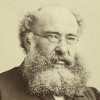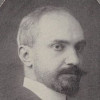“ If we attempt to remove from life all its evils, as the popular imagination has done at times, we shall find little but aesthetic pleasures remaining to constitute unalloyed happiness. ”
George Santayana, The Sense of Beauty (1896). copy citation
| Author | George Santayana |
|---|---|
| Source | The Sense of Beauty |
| Topic | aesthetics imagination |
| Date | 1896 |
| Language | English |
| Reference | |
| Note | |
| Weblink | http://www.gutenberg.org/files/26842/26842-h/26842-h.htm |
Context
“somewhere we must reach the good that is good in itself and for its own sake, else the whole process is futile, and the utility of our first object illusory. We here reach the second factor in our distinction, between aesthetic and moral values, which regards their immediacy.
If we attempt to remove from life all its evils, as the popular imagination has done at times, we shall find little but aesthetic pleasures remaining to constitute unalloyed happiness. The satisfaction of the passions and the appetites, in which we chiefly place earthly happiness, themselves take on an aesthetic tinge when we remove ideally the possibility of loss or variation. What could the Olympians honour in one another or the seraphim worship in God except the embodiment of eternal attributes, of essences which, like beauty, make us happy only in contemplation?”
source



